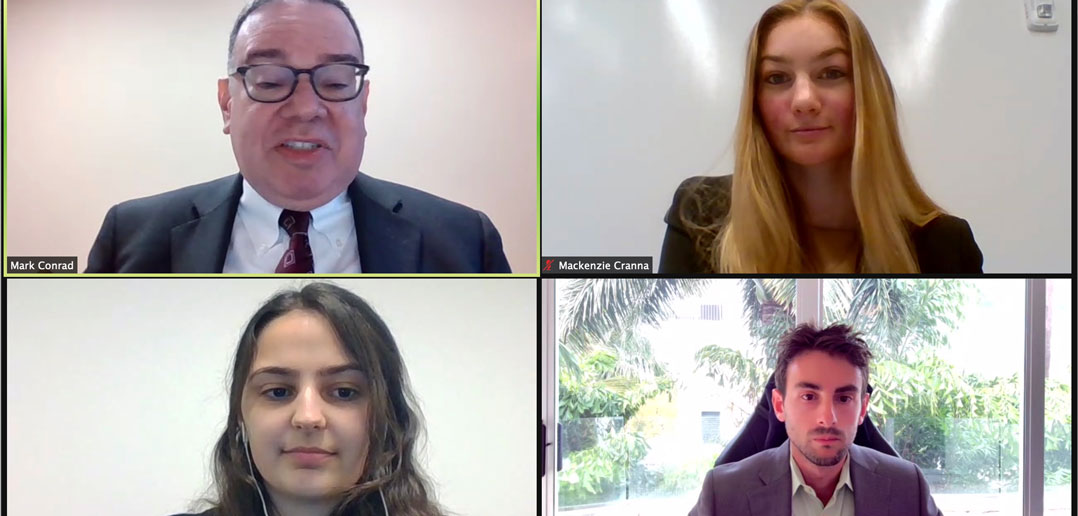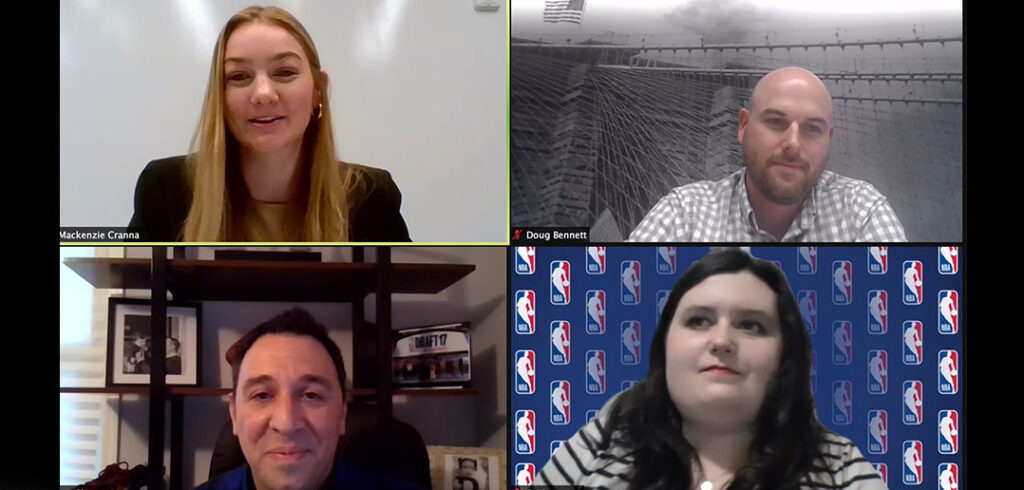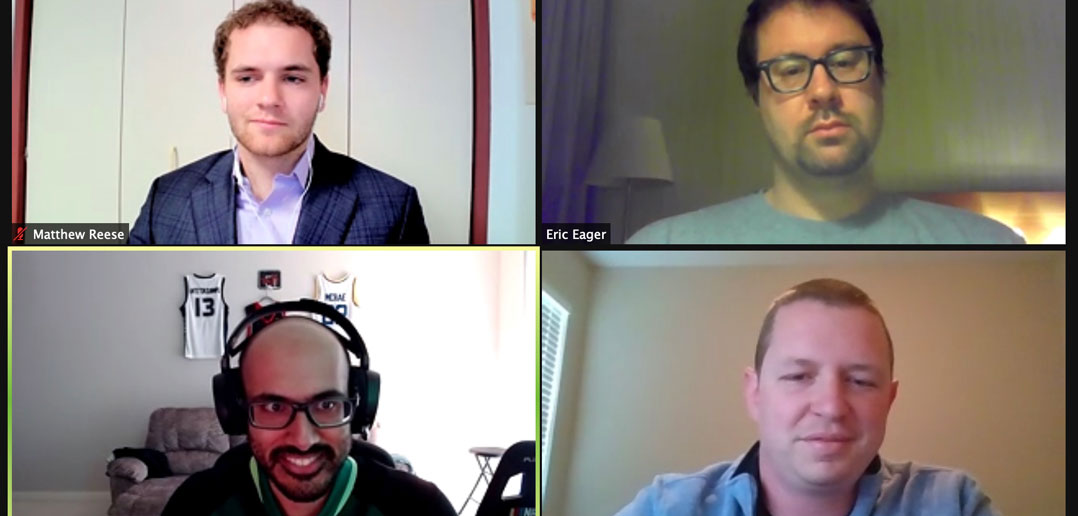When it comes to sports marketing, analytics, and legal matters–what does the future look like? That was the theme of the 10th annual Sports Business Symposium, hosted by the Business of Sports Society and the Gabelli School of Business.
“We’re celebrating this anniversary with a dynamic and timely program,” said Mark Conrad, associate professor of law and ethics at the Gabelli School. “We began 10 years ago in a very small room, and now we’ve been on Zoom the last two years and we draw present students, alumni, and guest speakers from all over the country.”
The event featured several Fordham graduates working in sports business fields. Conrad also announced the launch of a new Gabelli Sports Business Initiative, which aims to bring sports professionals together to discuss these cutting-edge topics.

Name, Image, and Likeness for College Athletes
After California and Florida passed laws allowing college athletes to sign sponsorship deals and earn money for the use of their name, image, and likeness—and after the Supreme Court issued a 9-0 ruling in a related case—the NCAA began allowing students across the country to do the same thing.
Keynote speaker attorney Darren Heitner, the founder of Heitner Legal, P.L.L.C., and adjunct professor of Sports Law at the University of Florida Levin College of Law, helped write the name, image, and likeness law that passed in Florida. While Heitner often works on deals with high-profile college athletes, this year, he noted that other athletes have been able to take advantage of their moments.
St. Peter’s Doug Edert: A Win-Win Deal
“When St. Peter’s had its amazing run, and everyone was talking about Doug Edert, Buffalo Wild Wings did a deal with him,” Heitner said. “It’s funny that he could not have received it prior to July 1 and I don’t think we’re gonna be talking about Doug for the foreseeable future—I don’t think he’s going to have a career in the NBA, yet it was a win-win for both sides.”
Conrad asked Heitner if in the future he thought student-athletes would try to take this a step further and work to get a contract with their university, essentially becoming employees of the institution. Heitner said he wasn’t sure if that was the best thing for them.
“I wonder whether it opens up a can of worms for athletes,” he said, noting that this could lead to questions, such as whether they were considered at-will employees. “I do think we are getting closer to an ecosystem where athletes are sharing in the revenues of their universities or perhaps the conferences.”
Diving Deeper into Analytics for ‘Smarter’ Fans
Sanjay Pothula, a research and innovation analyst with the Milwaukee Bucks who graduated from the Gabelli School of Business in 2015, said that he tries to stay on top of the latest in analytics by looking at sports other than basketball.
“I’ll try to see—are there ways that people are thinking about things differently? Because a lot of times, when you’re looking at your analysis in your own sport, sometimes … everyone has the same ideas about a similar topic,” he said. “And sometimes you just want to kind of get out of that and see ‘is there a new way to think about things?’”
Pothula said that Fordham helped connect him to internships in sports that gave him experience for his career.
“The great thing about Fordham was that there were a lot of people in different sports,” he said. “There especially were a lot of connections in baseball—(being) part of the Business of Sports Society at that time…it kind of gave me a realization of what I can do and what opportunities were out there.”
Pothula was on a panel with Caleb Shreve, the head of analytics for Orlando Soccer Club, and Eric Eager, vice president of research and development at Pro Football Focus, a sports analytics company that focuses on the NFL and NCAA football. Eager said that his company has had to adapt to a changing market of not just serving the teams and media, but also serving the fans who want detailed data analytics.
“It’s undeniable to me that the average sports fan and the average person who works in sports is just a lot smarter than they were 10 years ago,” he said. “You have fantasy football, sports betting, which is exploding—the average consumer of the game just has skin in the game more often than they did before, and they’re getting smarter.”
Using Influencer Content on Social Media
Emily Martin, manager of paid social marketing for the NBA and a 2018 graduate of the Gabelli School of Business, said that in her role she has to stay on top of the latest trends and ways people connect on the different social media platforms. For example, TikTok in particular, has a different style than previous social platforms.
“You really have to be more native in the platform because the users are highly sensitive to any sponsored content or anything that looks fake or inorganic,” she said in a panel discussion that also included Douglas Bennett, a senior manager of partnership marketing for NYCFC who and received his master’s in strategic marketing communications from the Gabelli School in 2020.
“So a strategy that we’re trying to utilize there is rather than using our paid content, which is huge, the best way is to try to get some influencers involved and boost stuff that has already been posted organically.”
Martin said that Fordham helped her take what she learned and put it into practice.
“I think that Fordham does a great job of really giving that hands-on experience,” she said. “To be able to really take in other sports marketing classes and business it helps you really develop that interest. And then, of course, the club and the concentrations really encourage you to get out there, get a sports internship.”


